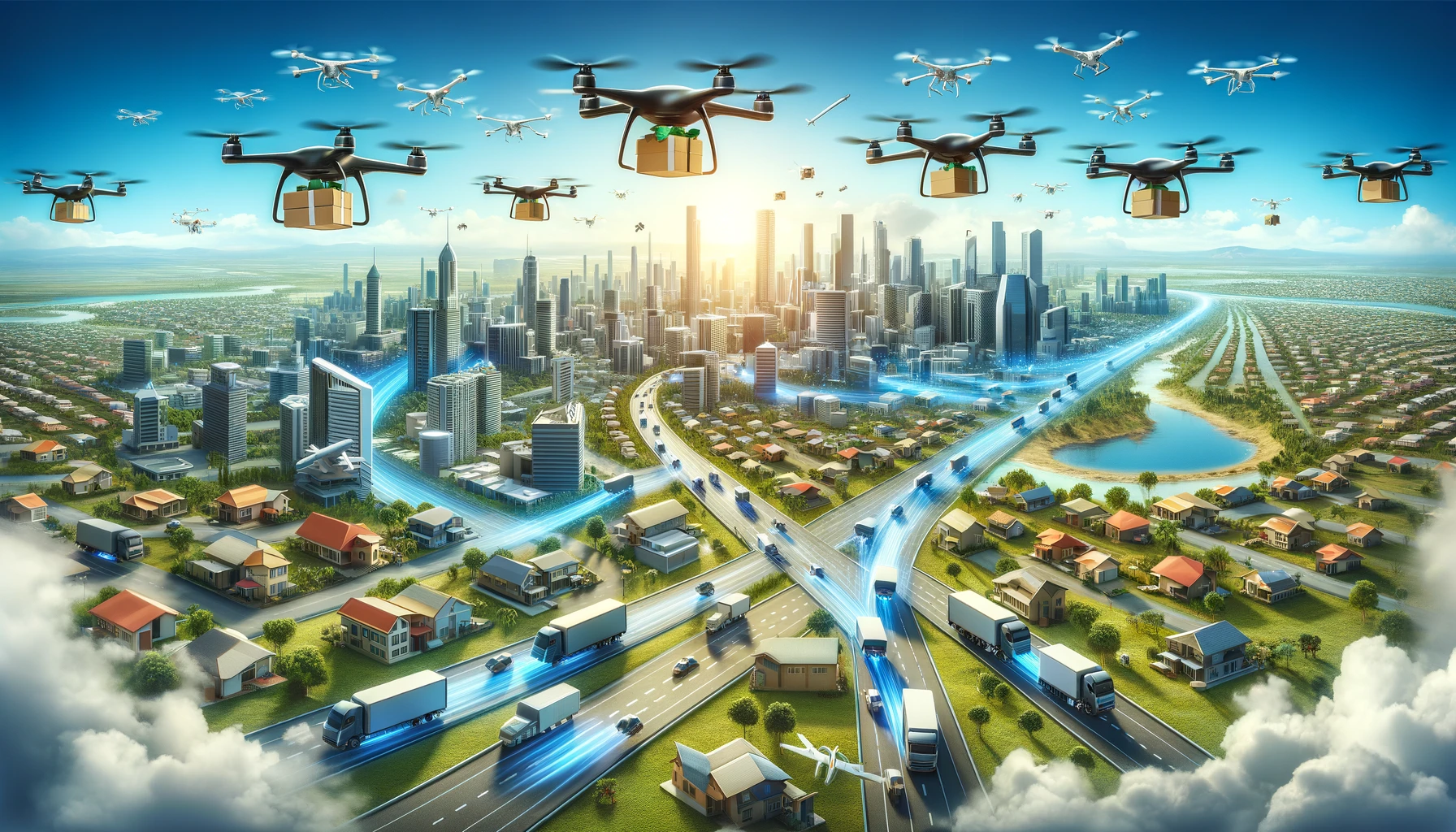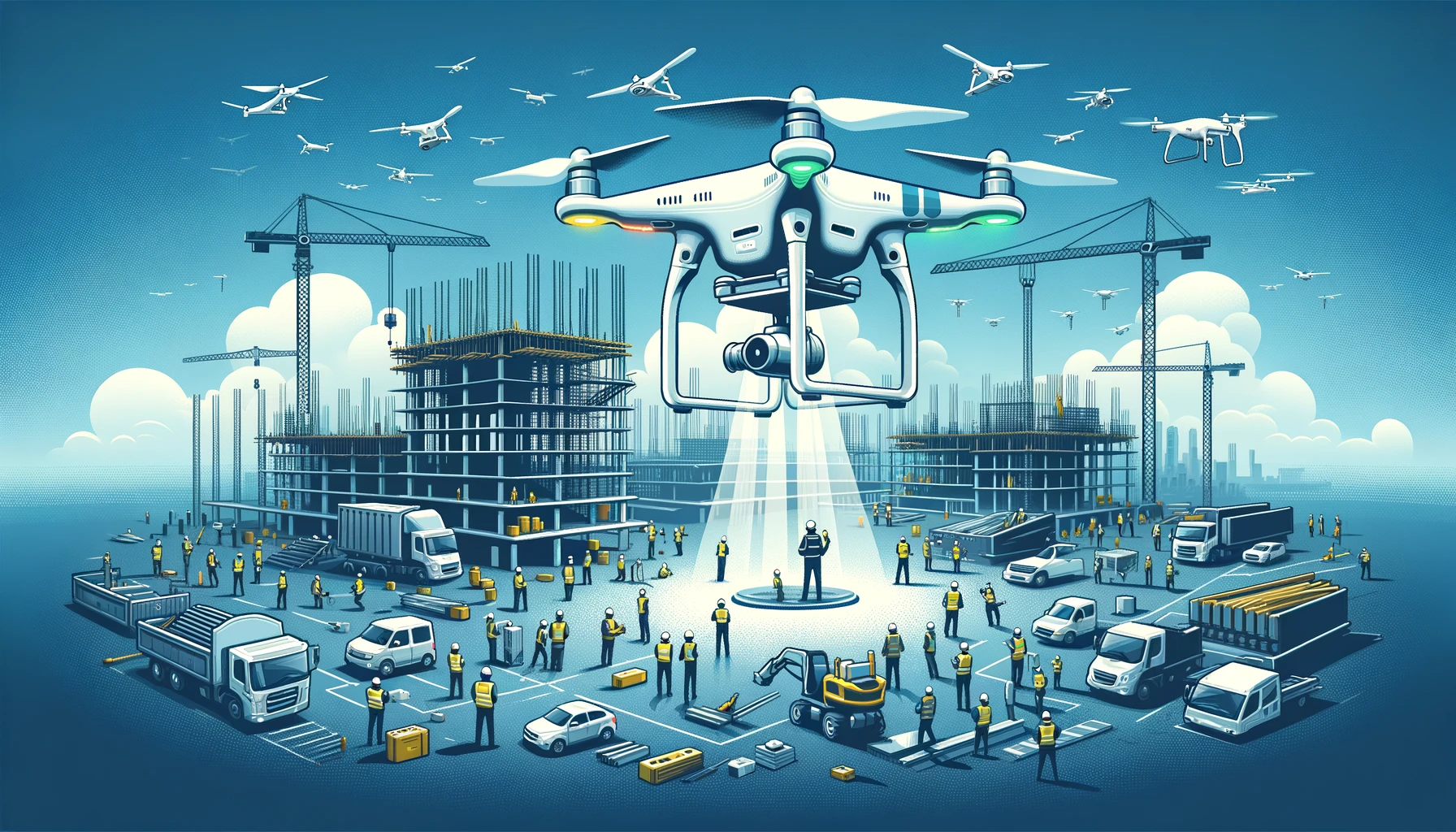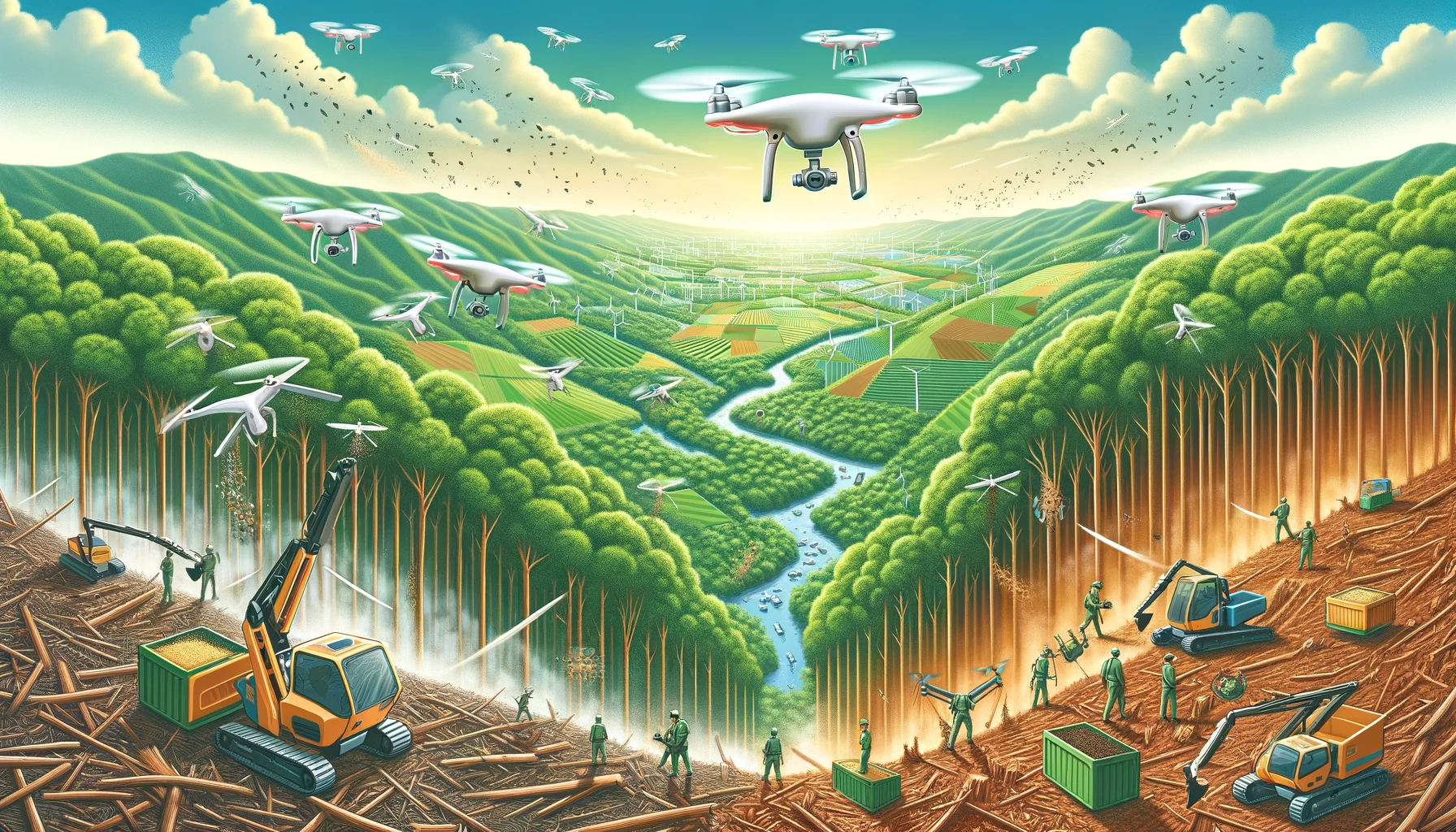The advent of drone technology is setting a new course for logistics and delivery services, offering a glimpse into a future where deliveries are faster, more efficient, and less constrained by traditional infrastructure challenges. From bustling urban centers to remote rural areas, drones are becoming a vital link in the supply chain, revolutionizing the way we think about moving goods. This article delves into the impact of drones on the logistics industry, highlighting their potential to transform delivery services.
Elevating Delivery Speed and Efficiency
Drones are breaking the barriers of traditional delivery methods by significantly reducing transit times. Capable of flying directly to their destinations without the hindrance of traffic or road networks, drones promise near-instantaneous delivery for a wide range of goods. This leap in speed and efficiency is not only beneficial for consumer convenience but also critical for time-sensitive deliveries, such as medical supplies.
Expanding Access to Remote Areas
One of the most profound impacts of drone delivery is its potential to serve remote and underserved communities. Traditional delivery services often struggle with the logistical and economic challenges of reaching remote areas. Drones, however, can easily navigate difficult terrains, providing essential goods and services to communities that were previously hard to reach, thus bridging the gap in global logistics.
Enhancing Sustainability
As the world grapples with environmental challenges, drones offer a greener alternative to traditional delivery vehicles. With electric-powered drones reducing carbon emissions and decreasing road traffic, drone delivery aligns with broader sustainability goals. This shift towards eco-friendly logistics is a step forward in reducing the carbon footprint of the delivery industry.
Navigating Regulatory and Safety Concerns
Despite the promising benefits, the widespread adoption of drone delivery faces regulatory and safety challenges. Concerns over air traffic management, privacy, and security need to be addressed to ensure safe and efficient operations. As drone technology advances, regulatory frameworks are evolving to accommodate this new mode of delivery, paving the way for broader implementation.
The Future of Drone Delivery
Looking ahead, drone delivery is poised for significant expansion. Innovations in drone technology, such as improved battery life, increased payload capacity, and autonomous flight capabilities, are continually pushing the boundaries of what’s possible. As companies invest in drone delivery and collaborate with regulators to ensure safe operations, the sky is becoming the next frontier for logistics.
Conclusion
Drones are revolutionizing the logistics and delivery industry, offering unprecedented speed, efficiency, and access. While challenges remain, the potential benefits of drone delivery for businesses, consumers, and remote communities are immense. As we navigate the regulatory and technological landscapes, drone delivery stands ready to redefine the future of logistics, making the dream of sky-high delivery a reality.



